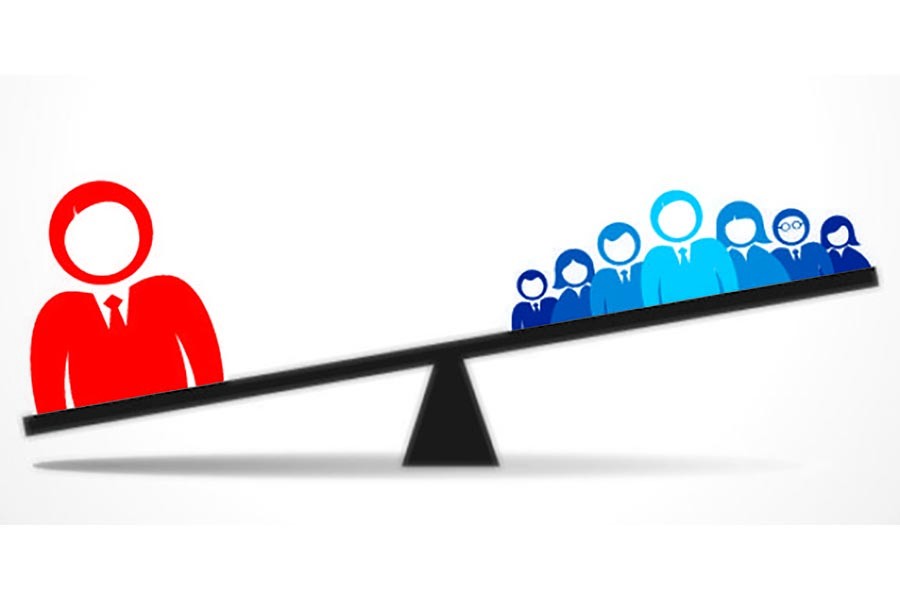Income and wealth gap is a socio-economic issue that had been the subject of contentious debates for a long time. It is symptomatic of the economic inequalities or differences found in various measures of economic well-being among individuals in a group, groups in a community, or among nations and expressed by economists in terms of three metrics: wealth, income, and consumption.
The world around us is a place where particularly wealth and income gaps within the communities as well as among nations are widening. Research shows while globalisation has brought down inequality among nations, it has increased the gap within nations. In other words, globalisation is yet to be conceptualised as a means to eradicating wealth gap among individuals or nations. The disparaging trend of widening income inequalities was revealed by a recent report titled 'An economy of ninety nine percent' by International Confederation of Charitable Organizations OXFAM. The report shows that stability in a world where 1.0 per cent of humanity controls as much wealth as the bottom 99 per cent cannot be sustainable and the world economy must stop excessively rewarding those at the top and start working for all people. This has been termed a human economy.
It was further stated in the report that the wealth owned by the poorer half of the world population last year was equivalent to wealth owned by 62 richest individuals in the world. In fact, 50 per cent of the world's total wealth is owned by 1.0 per cent of the world population. Again 10 per cent of the wealthiest people in India own 73 per cent of the country's total wealth. Explosion of billionaires is not indicative of the economy's strength, but a reflection of expanding inequality.
The spectacle is equally complex in poor countries and no less disconcerting. It is true that hundreds of millions of people were lifted out of poverty in recent years, but still one out of nine goes to bed hungry. Had growth been pro-poor, three-quarters of extreme poverty could be eliminated using existing resources, by increasing taxation and cutting down on military and other regressive expenses. According to the World Bank, world leaders will miss their goal of ending extreme poverty by 2030 without redoubling their efforts to tackle inequality.
The wealth and income gap has assumed alarming proportions and if it continues at this rate for another 25 years, the world will witness its first trillionaire when billionaires will be countless. A trillionaire will be a person who will own a trillion dollar and if s/he spends at a rate of million dollars per day, it will take 2,738 years to exhaust the wealth. Inequality between men and women is also alarming. The way things are moving now, women will have to wait for another 170 years to be on a par with men.
It has been three years since the World Bank twinned its goal for ending poverty with shared prosperity. Since then, and despite world leaders signing up to a global goal to reduce inequality, the gap between the rich and the rest has widened to such an alarming state that just eight men own the same wealth as owned by the poorest half of the world.
The phenomenon has taken us to a point when economy should be value-based rather than being driven by profit motives. The draconian spread of wealth gap between the richest and the poorest communities has given rise to a tumultuous debate. The very design of our economies and the principles of our economics that have dragged us to this point are responsible. To stop widespread wealth gap from inflicting further injuries to society, principles based on human values must be incorporated in our national policy framework.


